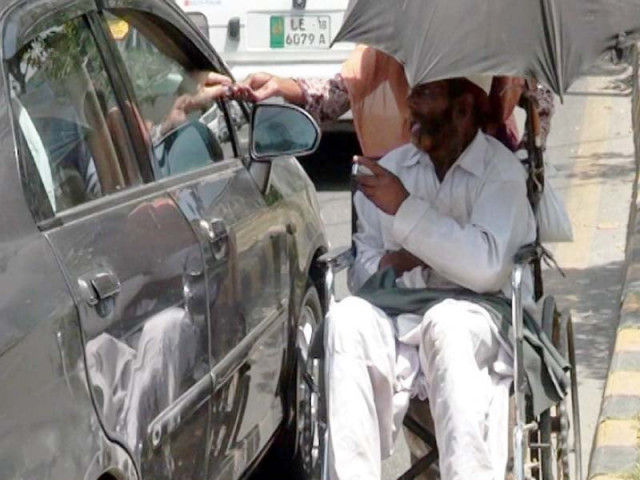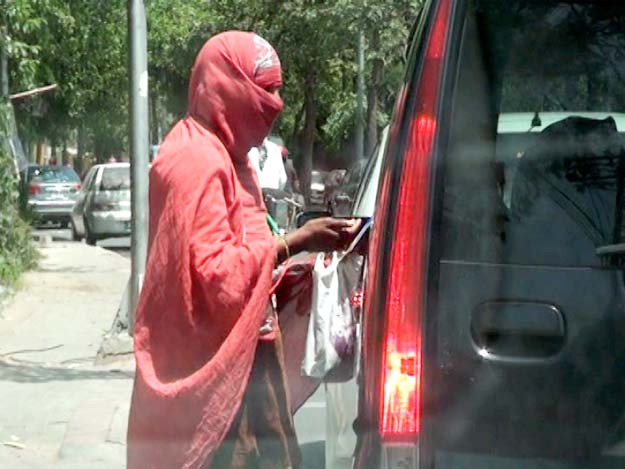For God’s sake: The beggar mafia gears up for Ramazan
Hundreds of beggars, including women and children, come to Lahore every year from far-flung areas of Punjab

PHOTOS: SOHAIL DANISH
To take maximum advantage, beggars and their handlers have converged on Lahore. Across the city, beggars have started crowding important interchanges, roundabouts and traffic signals. The handlers first fix rates for beggars and then allocate different locations to them, The Express Tribune has learnt.
Moreover, handlers, who are more influential, have occupied the traffic signals of high-income areas in a bid to collect more money from the wealthy.
Hundreds of beggars, including women and children, come to Lahore every year from far-flung areas of Punjab and resort to beggary as an easy way of earning money instead of looking for work.
Details obtained by The Express Tribune further revealed that some of the beggars have made prominent road junctions and traffic signals their permanent spots throughout the year.
Offbeat: Giving child beggars money does more harm than good
Although the Department of Social Welfare, the Child Protection and Welfare Bureau and others have taken action against the mafia from time to time, the number of beggars continues to grow each year.
It becomes hard for authorities to launch a crackdown against these professionals because whenever the government speeds up action, the beggars start employing various tactics to dodge them.
The tactics predominately involve coming onto the streets in the guise of sellers – holding water bottles, colouring books and windscreen wipers in their hands.

Talking to The Express Tribune, some car owners said that beggars, mostly comprising young girls and boys, carry wipers in their hands. As soon as cars stop at signals, beggars forcefully start cleaning the windows – without asking the driver for permission.
“Once done, they start claiming money for their labour,” a car driver said. “Others would come with water bottles, matchboxes, flowers and garlands to give the impression that they are selling it, but they only beg for money without the intention of selling anything.”
Apart from the streets, the famous Data Darbar in Lahore – which is the largest Sufi shrine in South Asia – has also become a stronghold for beggars because visitors give a lot of money to them in the name of religious offerings.
Other popular hotspots for beggars in the provincial capital include railway and bus stations, the busy Mall Road, Jail Road, Main Boulevard Gulberg, M M Alam Road, and Ferozepur Road, to name a few. Many of the beggars have also constructed makeshift residences near their begging spots. Some beggars also work in groups, as commonly seen near the main markets of the city.
According to sources at the department of social welfare, ever since begging has become an organised profession, handlers assign beggars different locations, and they cannot go to another beggar’s area. The protocol is maintained by the chiefs of the profession.
Speaking to The Express Tribune, one beggar explained that there are two kinds of handlers. The first group is responsible for bringing new beggars to Lahore from far-flung areas of the province, while the job of the second group is to decide begging times and locations for different beggars.
“The handlers use private transport to bring beggars to Lahore and also make arrangements for their temporary residence. They also provide pick-and-drop services to the beggars across the city,” the beggar said.
“In return, the beggars have to give a share of the collection to the handlers,” he concluded.
Published in The Express Tribune, May 4th, 2019.



















COMMENTS
Comments are moderated and generally will be posted if they are on-topic and not abusive.
For more information, please see our Comments FAQ